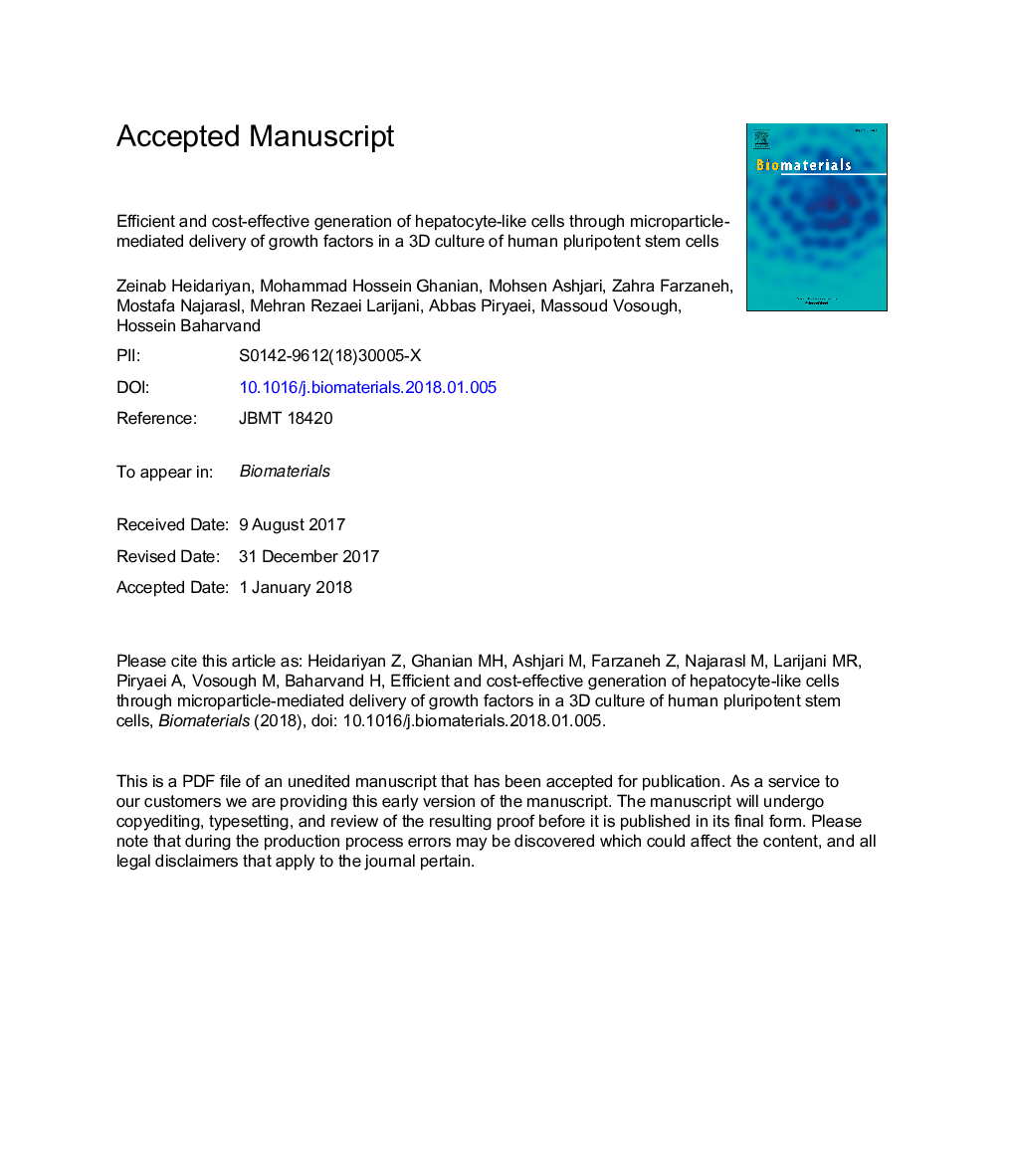| Article ID | Journal | Published Year | Pages | File Type |
|---|---|---|---|---|
| 6484669 | Biomaterials | 2018 | 44 Pages |
Abstract
Biomedical application of human pluripotent stem cell-derived hepatocyte-like cells (hPSC-HLCs) relies on efficient large-scale differentiation, which is commonly performed by a suspension culture of three-dimensional (3D) multicellular spheroids in bioreactors. However, this approach requires large amounts of growth factors (GFs) and the need to overcome limited diffusional transport posed by the inherent 3D structure of hPSC spheroids. Here, we have hypothesized that localized delivery of GFs by incorporation of GF-laden degradable polymeric microparticles (MPs) within the hPSC spheroids would circumvent such limitations. In this study, GFs for hepatocytic differentiation were encapsulated in gelatin-coated poly (l-lactic acid)/poly (DL-lactic-co-glycolic acid) (PLLA/PLGA) MPs which were subsequently incorporated into the hPSC spheroids. Gene expression analyses demonstrated that MP delivery of the GFs resulted in similar expression levels of hepatocytic markers despite the use of 10-fold less total GFs. The differentiated HLCs in the MP group exhibited ultrastructure and functional characteristics comparable with the conventional soluble GF group. The generated HLCs in the MP group were successfully engrafted in an acute liver injury mouse model and maintained hepatocytic function after implantation. These results suggested that sustained and localized delivery of GFs using MPs might offer a novel approach towards scalable technologies for hepatocytic differentiation and engineer a better 3D microenvironment for cells.
Related Topics
Physical Sciences and Engineering
Chemical Engineering
Bioengineering
Authors
Zeinab Heidariyan, Mohammad Hossein Ghanian, Mohsen Ashjari, Zahra Farzaneh, Mostafa Najarasl, Mehran Rezaei Larijani, Abbas Piryaei, Massoud Vosough, Hossein Baharvand,
